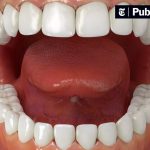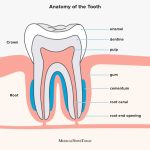Say Goodbye to Tooth Grinding: Effective Ways to Stop Your Baby’s Teeth Grinding Habit
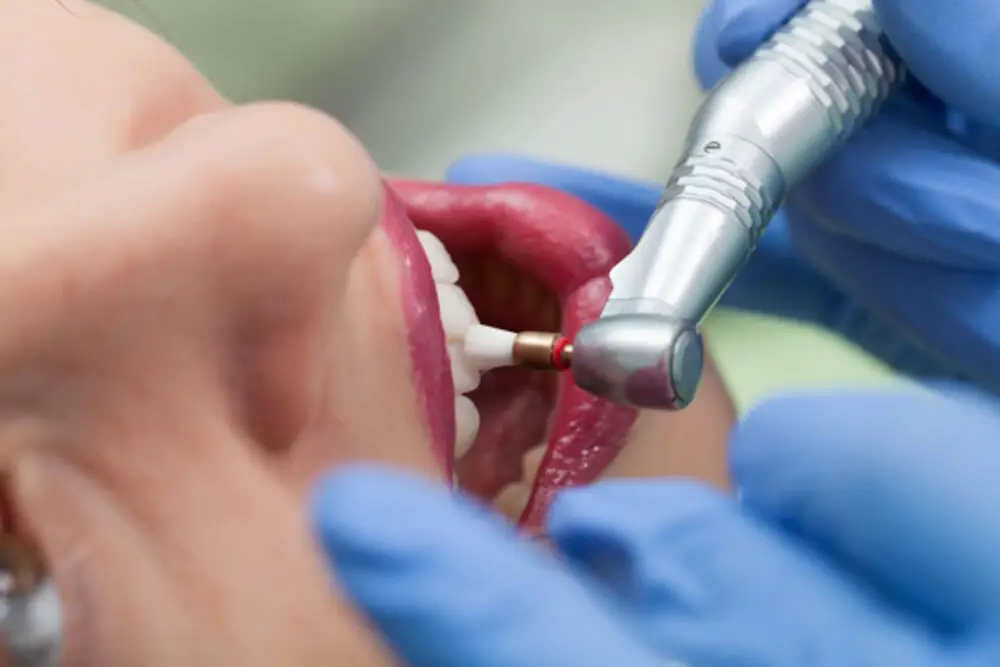
Tooth grinding, medically known as bruxism, is a common dental problem that affects both adults and children. However, when it comes to babies and toddlers, it can be quite alarming for parents to see their little ones clenching and grinding their teeth. While many babies outgrow this habit without any intervention, some may continue to grind their teeth, leading to potential dental damage, jaw pain, and sleep disruption. As a parent, it is essential to understand the causes and effective ways to stop your baby’s teeth grinding habit. The causes of teeth grinding in babies are not always clear, but it is often associated with stress, anxiety, teething, ear infections, and an abnormal bite. Therefore, the first step in addressing this problem is to identify the underlying cause. Once you have determined the cause, you can take steps to prevent or reduce the frequency of teeth grinding. In this article, we will discuss effective ways to stop your baby’s teeth grinding habit, from simple home remedies to seeking professional dental care. With these tips, you can help your little one say goodbye to tooth grinding and ensure their dental health and overall well-being.
Tooth grinding, also known as bruxism, is a common condition where a person clenches or grinds their teeth unconsciously, usually during sleep. It’s a habit that affects both children and adults and can lead to various dental problems such as tooth wear, jaw pain, and headaches. Tooth grinding is often associated with stress, anxiety, or an abnormal bite. In babies, it’s usually a natural part of their development and may not cause any harm. However, it’s important to monitor the habit and take steps to prevent it from becoming a long-term problem.
Tooth grinding, also known as bruxism, is a common phenomenon among babies. While the exact cause of tooth grinding in babies is unknown, it is believed to have several possible causes. One potential cause of teeth grinding in babies is teething. As new teeth begin to emerge, babies may experience discomfort and pain, causing them to grind their teeth. Another possible cause of tooth grinding in babies is stress or anxiety. Babies may grind their teeth due to stress caused by changes in their daily routine or environments. Additionally, some medical conditions such as acid reflux or respiratory problems can also cause bruxism in babies. It is essential to identify the root cause of tooth grinding in babies to prevent any long-term damage to their teeth and jaws.
Signs and Symptoms of Tooth Grinding
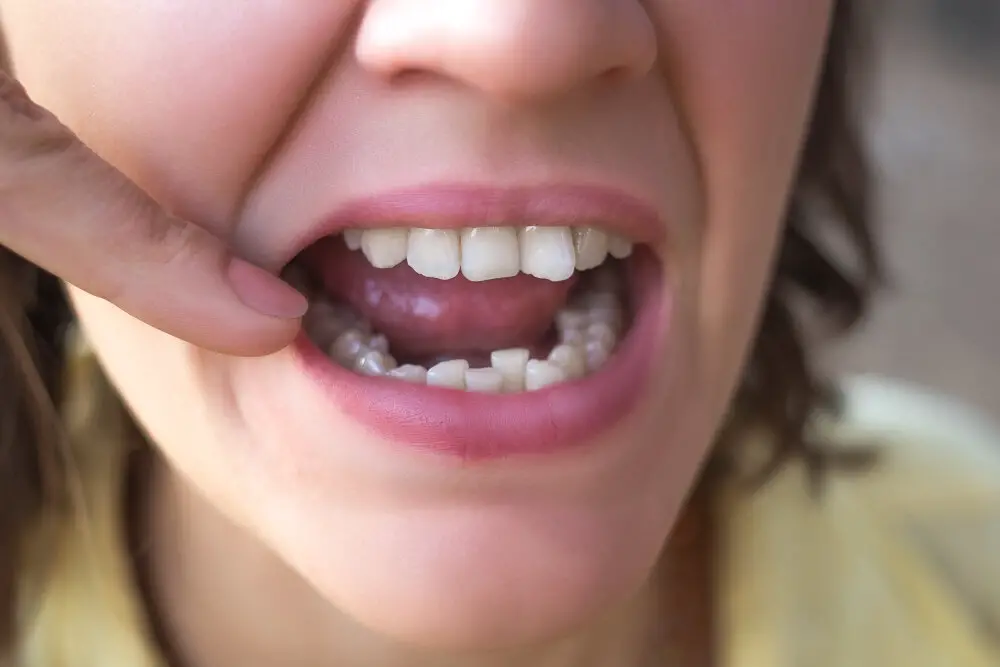
Tooth grinding, also known as bruxism, is a common condition that affects people of all ages. It is characterized by the involuntary clenching and grinding of teeth, often during sleep. While the exact causes of tooth grinding are not fully understood, it is believed to be associated with stress, anxiety, and certain medical conditions. Some of the most common signs and symptoms of tooth grinding include jaw pain, headaches, earaches, and tooth sensitivity. In severe cases, tooth grinding can even lead to tooth fractures, gum recession, and tooth loss. Other signs and symptoms of tooth grinding may include facial muscle pain, stiffness, and fatigue, as well as difficulty opening and closing the mouth. Some people may also experience bruxism-related sleep disturbances, such as snoring, restless sleep, and sleep apnea. If left untreated, tooth grinding can have serious consequences for oral health, as well as overall well-being. Fortunately, there are a variety of effective treatments and strategies that can help reduce or eliminate tooth grinding, ranging from lifestyle changes and stress management techniques to dental appliances and medications. By recognizing the signs and symptoms of tooth grinding and seeking prompt treatment, individuals can protect their oral health and improve their quality of life.
To effectively stop your baby’s teeth grinding habit, it is important to keep an eye out for certain signs and symptoms. These can include things like your child complaining of earaches or headaches, having difficulty sleeping, experiencing pain or discomfort in their jaw or face, or exhibiting signs of tooth sensitivity or damage. Other potential indicators of teeth grinding may include facial muscle tension, clicking or popping sounds when your child opens or closes their mouth, or even worn down teeth or enamel. By staying vigilant and watching for these warning signs, you can take steps to address your child’s teeth grinding habit and help them achieve a healthier, more comfortable sleep pattern.
Tooth grinding, also known as bruxism, can be harmful to your baby’s teeth and overall health. If left untreated, it can lead to tooth damage, jaw pain, headaches, and sleep disturbances. Tooth grinding can wear down the enamel on your baby’s teeth, making them more susceptible to cavities and other dental problems. In addition, constant grinding can cause stress on their jaw muscles and temporomandibular joint (TMJ), leading to pain and discomfort. Moreover, tooth grinding can also disrupt their sleep patterns, causing fatigue, mood swings, and irritability. It is important to address tooth grinding early on to prevent long-term damage to your baby’s teeth and overall health.
Understanding the Causes of Tooth Grinding in Babies

Tooth grinding or bruxism is a common habit among babies and young children. The sound of teeth grinding can be quite alarming and may cause concern for parents. The causes of tooth grinding in babies can vary from child to child. One of the most common causes is teething. The pain and discomfort associated with teething can cause babies to grind their teeth as a way to relieve the discomfort. Anxiety and stress can also be a cause of tooth grinding in babies. Changes in routine, such as starting daycare or having a new caregiver, can cause anxiety in babies and lead to tooth grinding. Additionally, neurological disorders or sleep disorders can also be a cause of tooth grinding in babies. It is important for parents to understand the causes of tooth grinding in babies in order to address the underlying issue. If teething is the cause, providing teething toys or a chilled washcloth for the baby to chew on can help relieve the discomfort and reduce tooth grinding. If anxiety or stress is the cause, providing a calm and comfortable environment for the baby can help reduce tooth grinding. Additionally, speaking to a pediatrician or dentist can help identify any underlying neurological or sleep disorders that may be causing tooth grinding in the baby. By understanding the causes of tooth grinding in babies, parents can take appropriate steps to address the issue and help their baby get a good night’s sleep.
Tooth grinding in babies is a common condition that may be caused by several factors. The first possible cause is teething, which is a natural process that babies go through during the first few years of their life. The discomfort and pain associated with teething can cause babies to grind their teeth as a way of relieving the pressure. Another possible cause of tooth grinding in babies is stress or anxiety. Babies may grind their teeth when they are feeling anxious or overwhelmed, such as when they are in a new environment, or when they are experiencing changes in their routine. Finally, tooth grinding in babies may be caused by misaligned teeth or an abnormal bite. In such cases, it is important to consult a pediatric dentist who can diagnose and treat the underlying problem.
Stress, anxiety, and sleep disorders are common contributors to tooth grinding, a condition also known as bruxism. When we experience stress or anxiety, our body responds by tensing up, and this can lead to clenching or grinding of teeth. Additionally, sleep disorders such as sleep apnea can cause bruxism, as the body tries to maintain an open airway by clenching the jaw. Tooth grinding can result in a range of dental problems, including cracked or chipped teeth, jaw pain, and headaches. Therefore, it is essential to address underlying causes of stress, anxiety, and sleep disorders to prevent tooth grinding and maintain good oral health.
Effective Ways to Stop Your Baby’s Teeth Grinding Habit
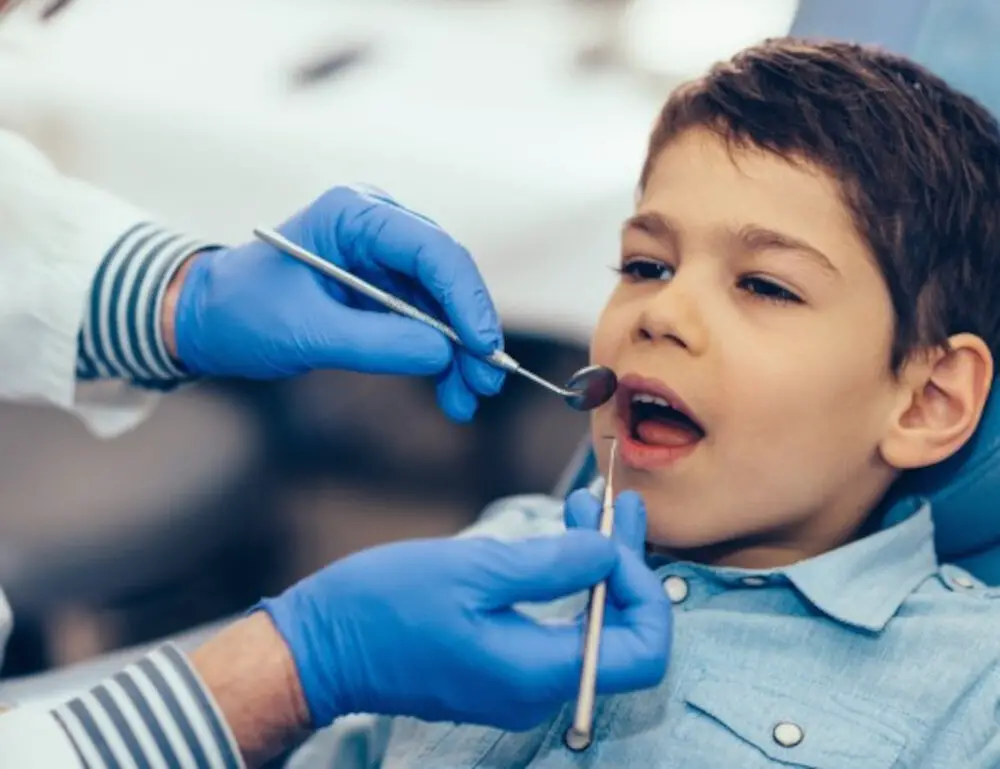
Tooth grinding, also known as bruxism, can be a common habit among babies and young children. While it may not be harmful in the short term, it can lead to dental problems if left unchecked. Fortunately, there are several effective ways to stop your baby’s teeth grinding habit. One approach is to provide your child with a soothing bedtime routine, such as a warm bath or story time, to help them relax before sleep. You can also try offering your child a pacifier or soft toy to help them self-soothe and reduce stress. Another effective strategy is to address any underlying causes of stress or anxiety that may be contributing to your child’s teeth grinding habit. This could involve making changes to your child’s routine or environment to reduce stress, such as establishing a consistent sleep schedule or creating a calm and quiet sleep environment. Additionally, you may want to consult with your child’s pediatrician or a dental professional to rule out any underlying medical conditions that could be contributing to the habit. With patience and persistence, you can help your child overcome their teeth grinding habit and promote healthy dental habits for life.
To prevent tooth grinding in babies, there are several tips that parents can follow. Firstly, it is important to create a soothing bedtime routine to help your baby relax before sleep. Secondly, try to identify any sources of stress that may be causing your baby to grind their teeth and remove them. Thirdly, ensure that your baby’s diet is healthy and balanced, and that they are getting enough sleep. Fourthly, make sure that your baby’s teeth and gums are healthy by scheduling regular appointments with a pediatric dentist. Finally, if you notice that your baby is grinding their teeth, try to distract them with a toy or a gentle touch to their face, and consult a pediatric dentist for further advice. By following these tips, parents can help prevent tooth grinding in their babies and ensure their little ones have healthy and happy teeth.
Creating a relaxing bedtime routine for your baby is essential for their overall health and development. A soothing routine can help them feel safe and secure, which is essential for healthy sleep habits. A consistent bedtime routine can also help regulate their circadian rhythm and promote healthy sleep patterns. It can include activities such as a warm bath, reading a story, or singing a lullaby. A relaxing routine can also help reduce stress and anxiety, which can contribute to tooth grinding. By establishing a calming bedtime routine, you can help your baby develop healthy sleep habits and reduce their tooth grinding habit.
Using a pacifier or a teething toy can be very helpful in reducing tooth grinding in babies. The continuous sucking motion required to use a pacifier can help to relax the jaw muscles, which can alleviate the urge to grind teeth. Additionally, the use of a teething toy can provide a soothing sensation to the gums and teeth, which can reduce the discomfort that often leads to tooth grinding. It is important to note that pacifiers and teething toys should be used appropriately and under supervision to ensure that they do not cause any harm or become a choking hazard. With consistent use and proper guidance, pacifiers and teething toys can be a useful tool in preventing tooth grinding in babies.
When to Seek Professional Help
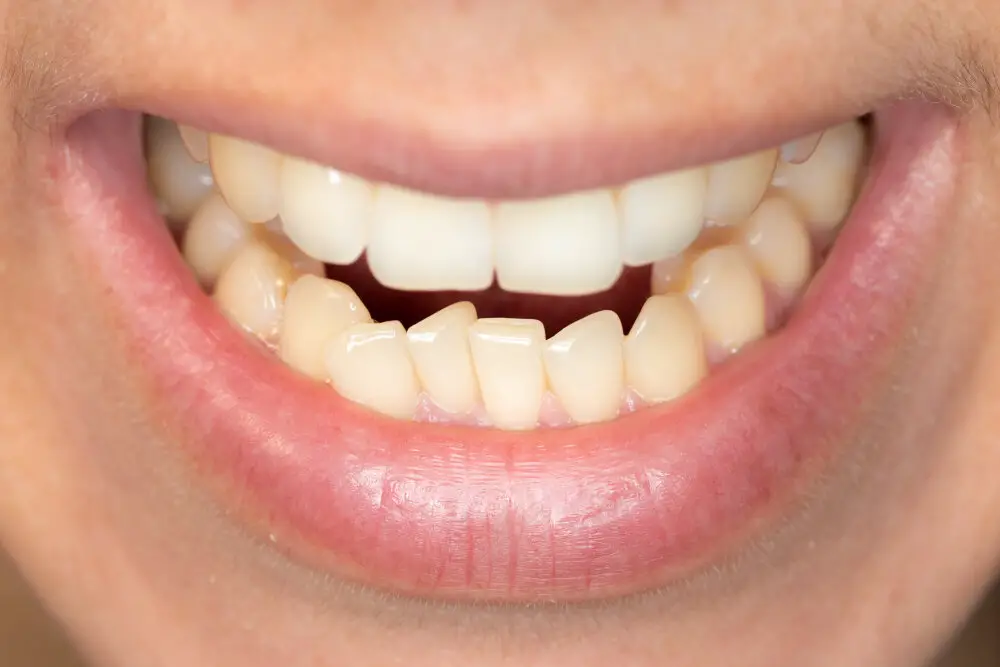
Tooth grinding or bruxism is a common issue that affects millions of people worldwide, but it can be particularly alarming when it affects babies. While occasional teeth grinding is not usually a cause for concern, persistent grinding can lead to dental problems, such as chipped or loose teeth, and can even disrupt your child’s sleep patterns. If your baby’s teeth grinding is causing discomfort or is interfering with their daily life, it may be time to seek professional help. There are several signs that it may be time to seek professional help for your baby’s teeth grinding. If your child is experiencing pain or discomfort, if their teeth are becoming worn down or chipped, or if they are experiencing headaches or earaches, it may be time to consult a dentist or pediatrician. A healthcare professional can help determine the cause of your child’s teeth grinding and recommend appropriate treatment options. Some potential treatments may include a mouthguard or other dental appliance, behavior modification techniques, or medication to help manage pain or anxiety. By seeking professional help for your child’s teeth grinding, you can help ensure that they receive the care and support they need to overcome this common issue and maintain optimal oral health.
If your baby or child grinds their teeth at night, it can be concerning for parents. While mild cases of teeth grinding, also known as bruxism, may not require medical intervention, severe cases can lead to dental problems, headaches, and even sleep disorders. In such cases, it is best to consult a pediatric dentist or a sleep specialist. A pediatric dentist can examine your child’s teeth and recommend treatment options such as mouthguards or dental corrections to prevent further damage. On the other hand, a sleep specialist can evaluate your child’s sleeping habits and determine if there are underlying sleep disorders causing the teeth grinding. Collaborating with both experts can lead to effective treatment and help your child overcome their teeth grinding habit.
Tooth grinding in babies is a common habit that can cause concerns for parents. The treatment and interventions recommended for tooth grinding in babies can vary depending on the severity of the habit. In mild cases, parents can help their baby to relax before bedtime by establishing a consistent bedtime routine or providing a calming environment. In more severe cases, a dentist may recommend a mouthguard to protect the baby’s teeth. Additionally, parents may be advised to limit their child’s intake of foods and drinks that contain caffeine or sugar, as these can exacerbate tooth grinding. In some cases, the habit may be related to an underlying medical condition, in which case a doctor may recommend further evaluation or treatment. Overall, a combination of approaches may be necessary to effectively address tooth grinding in babies.
The article on \Say Goodbye to Tooth Grinding – Effective Ways to Stop Your Baby’s Teeth Grinding Habit\ highlights the causes and remedies for teeth grinding or bruxism in babies. The article informs that bruxism is a common habit among babies, caused by the growth and development of teeth, allergies, and stress. The article suggests that parents can help their babies stop teeth grinding by reducing their stress levels, ensuring a calming bedtime routine, and providing a pacifier to suck on. Furthermore, the article suggests that parents should consult a dentist if the problem persists, as it can lead to tooth wear and tear, headaches, and jaw pain. In conclusion, the article provides valuable insights into the causes and remedies for teeth grinding in babies and emphasizes the importance of seeking medical intervention if necessary.
Tooth grinding, also known as bruxism, is a common habit in babies and toddlers that can lead to dental complications if left unaddressed. It is important to recognize the signs of tooth grinding, such as a clicking sound during sleep or worn down teeth, and take action to prevent further damage. This can include the use of dental appliances or addressing underlying causes such as stress or anxiety. By addressing tooth grinding in babies, we can ensure their overall wellbeing and prevent long-term dental issues that can affect their oral health throughout their lives.
Conclusion
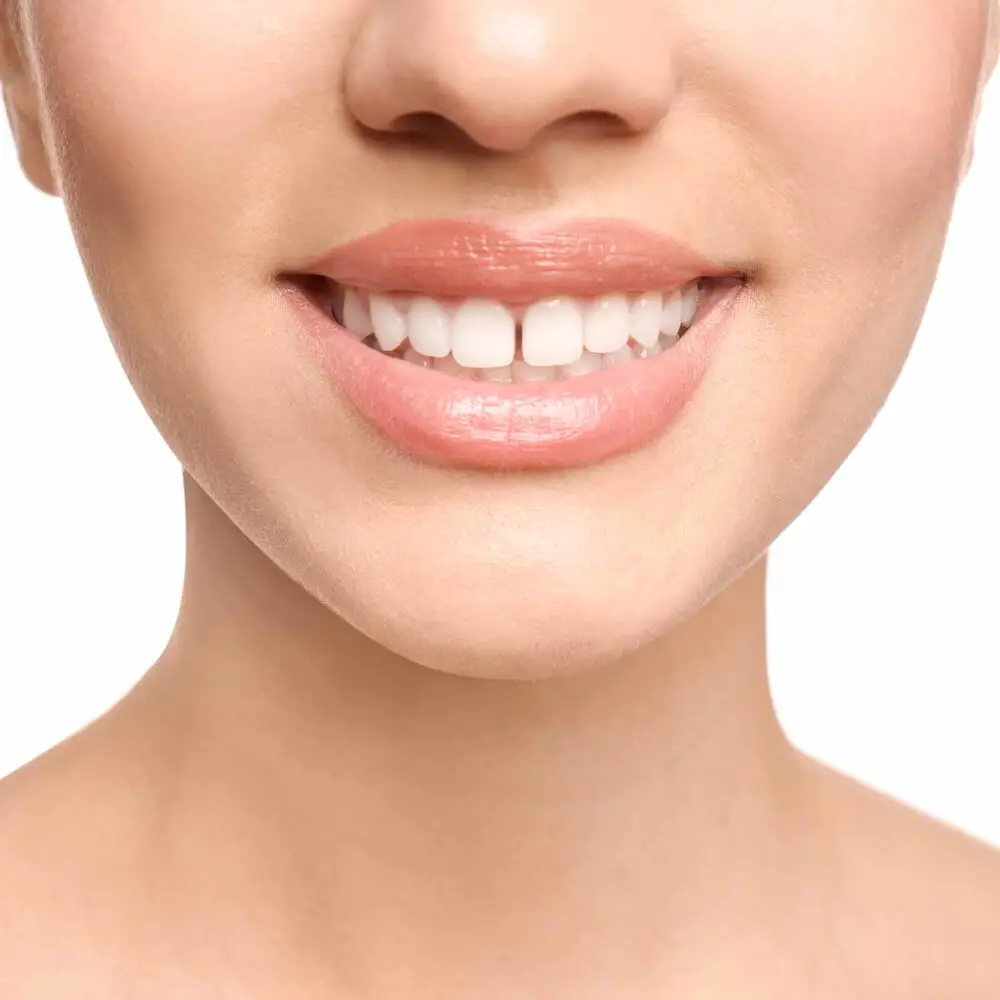
In conclusion, tooth grinding in babies is a common habit that can be concerning for parents. While it is not always harmful, it can lead to dental problems and disrupt your baby’s sleep. The good news is that there are effective ways to stop this habit, such as addressing any underlying medical conditions, providing a relaxing bedtime routine, and using a mouthguard if necessary. It is important to keep in mind that each baby is different and what works for one may not work for another. Consulting with a pediatrician or dentist can provide valuable insights and guidance. With patience, consistency, and proper care, you can help your baby say goodbye to tooth grinding and enjoy a healthy smile.


